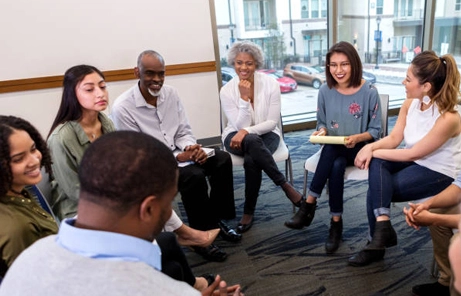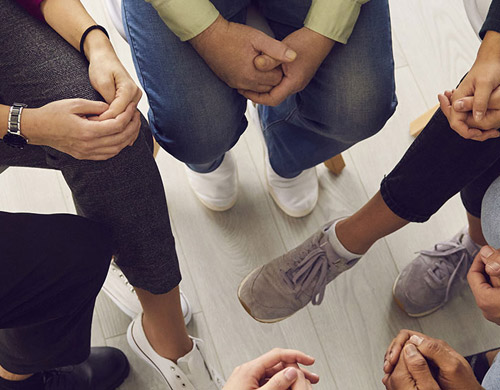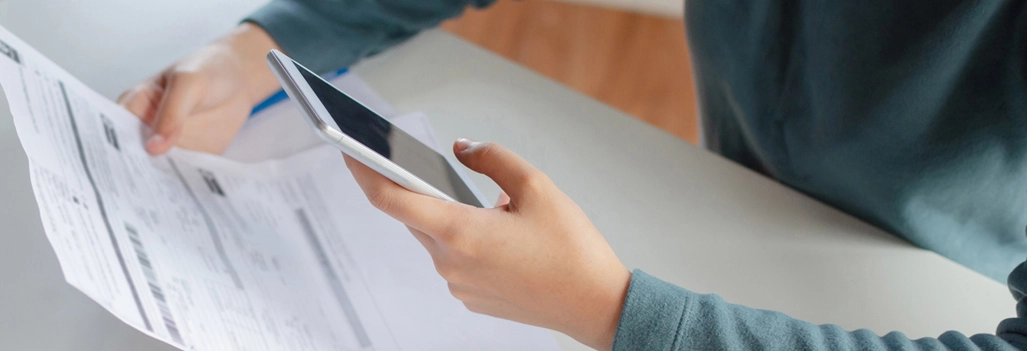Alcohol and drug addictions introduce hurdles when you or someone you love experiences them. Through proven rehabilitation interventions, addiction can be treated for long-term recovery.
This Guide will explain integrated approaches to addiction rehabilitation and how you or someone you love can begin and maintain addiction recovery.
What is Addiction Rehab (Rehabilitation)?
Addiction ‘rehabilitation’ is a holistic term that introduces both the therapeutic and medical interventions to treat both legal and illegal substance dependencies.
Rehab treatment has better chances of long term success if it is customized to the unique needs of the client and includes medically-assisted detoxification, inpatient or outpatient programs, and relapse management techniques such as aftercare.

Facts & Statistics about Addiction in Shasta
Prevalence of Substance Use Disorder, by Drug Type
(IN THOUSANDS)
- 2,7578.5%Any Substance
- 2,0886.4%Alcohol
- 1,0683.3%Ilicit Drugs
- 2060.6%Pain Medication
Drug- and Alcohol-Induced Deaths by Age Group, California, 2016
- Alcohol-Induced
- Drug-Induced
- 18 to 250.5
- 9.6
- 26 to 354.3
- 13.9
- 36 to 6424.2
- 22.9
- 65+23.7
- 9.4
Drug Use, by Selected Type and Age Group California, 2015 to 2016
- 12 to 17
- 18 to 25
- 26+
- Marijuana*13.2%
- 34.0%
- 13.5%
- Misuse of Pain Medications3.5%
- 8.0%
- 4.3%
- Cocaine0.8%
- 7.2%
- 1.8%
- Heroin0%
- 0.4%
- 0.2%
What are the treatment options available in Shasta?
Identifying and healing the root causes behind your drug or alcohol dependence can be achieved through an integrated treatment program. It is crucial to treat the symptoms of addiction, but coping strategies need to be considered, in order for you to work with the triggers that lead to the substance dependency.

Private Residential Programs
Residential rehab programs require you to stay at the treatment center and have your treatments on-site. One of the key benefits is access to 24-hour treatment and support. If you stay at a rehab facility you will be free from most of the triggers in your home environment that may encourage your substance abuse.
If you stay in a safe and secure environment you can protect yourself against relapse and increase the likelihood of finishing your rehab program.
Residential addiction treatment programs are generally most effective if your drug or alcohol dependency is chronic or intense, or if you struggle with co-occurring disorders or have a dual diagnosis. Sobering up is achievable if you partake in a residential treatment program, but if you want to maintain sobriety you will have to rise above the difficulties that come with the first year of recovery. On completion of your residential addiction treatment program, you will transition towards further independence as you set goals for your new substance-free life.
Do You Need Help?
Our addiction advisers are here to help you.

Sober Living Programs
Sober living programs are structured with the necessary support to help people in recovery get what they need from their new life without substance dependence. They support you through:
- A house manager who will visit you daily
- Supporting you on acceptable ways to behave in recovery
- Encouraging positive relationships with others in recovery who can relate to your experiences
Outpatient Programs
Outpatient programs are easier to adjust to so that you can continue any work and family commitments and still undergo treatments, by attending the rehab facility at your own pace.
Outpatient programs typically feature:
- Drug abuse education
- Counseling and therapy including individual or group sessions – Your personal needs usually determine the length of your outpatient program, which may extend from a few months to a year.
Detox Only Programs
Participating in a detoxification program is the first step in rehab as it tackles your physical dependency by eliminating substances from your body. You will undergo withdrawal symptoms as a natural reaction to the absence of substances in your system.
This detox phase marks the beginning of the rehabilitation process, and the next steps work to identify and heal the underlying problems that lead to your addiction, so that those same issues do not happen again. You may develop withdrawal symptoms and cravings for a few weeks after your detox phase has ended. In rehabilitative therapy you will identify the coping skills for long-term abstinence, so that you can avoid relapse in the future.
Paying for Private Treatment
Private rehab will need to be paid with your own funds or claimed from your insurance provider. Many insurance companies will contribute to parts of your rehab treatment, including a drug or alcohol detox, a rehab program, and any medications you may benefit from. The amount covered for your rehab treatment is down to your provider and the policy agreement.
Before you take part in a rehab program, you should speak to your insurance provider to understand how much cover you claim for. You can visit our Verify Your Insurance page for more details on the cover you can claim for.
If you choose not to claim against your insurance provider, you will need to pay for your treatment. Some facilities may offer payment plans to clients who find the costs unaffordable upfront.
State Funded Programs
State-funded treatment programs are useful for individuals who are motivated to overcome a drug or alcohol problem but have limited funds to enroll in a program.
Through the use of funds from state and federal sources as well as Medicaid, these programs may facilitate treatments such as:
- Medical detoxes
- Rehab treatment programs which includes relapse prevention programs
Those who do not have private health cover or live in households with lower combined income may qualify for a state-funded treatment program. To begin the application, you will need to give:

- Proof of residence
- Proof of earnings
- Details about your addiction from your medical history and details about your substance issues
- Proof that you have the legal right to live and remain in the US
Visit https://www.grants.gov/ for further details about the application process.
You can also download this file to find contact details for your state agency.
The following state-funded addiction rehab programs are available in Shasta:
Shasta Cnty Health and Human Services Womens Recovery and Resiliency Servs
1506 Market Street, Redding, CA 96001
530-245-6411
www.co.shasta.ca.usPsychiatric Care Center
2885 Churn Creek Road, Suite A, Redding, CA 96002
530-221-6303
www.pcccares.comVOTC Inc Visions of the Cross
3590 El Portal Drive, Suites 7-10 and 15-17, Redding, CA 96002
530-722-1114 x401
www.visionsofthecross.com
Maintaining Addiction Recovery in Shasta
Sustaining recovery can feel hard once you return to life outside of rehab. During your stay, you have been in a controlled and safe environment, supported by professionals. Your coping skills will be put to the test when you leave rehab, as you may experience some challenges that you still need to learn to deal with. Long term recovery is more challenging if you have a severe dependency or if you return to your new life without social support structures in place. Without the relevant support and aftercare to guide you in your new life, relapse is a real possibility.
The following AA/NA meetings are available in Shasta:
AA - SERENITY GROUP
In person, Discussion and Open:
3440 Shasta Dam Blvd., Shasta Lake, CA 96019
Thursday: 7:00 pm
https://aanorcal.org/Sunday Book Study Group
Open, Wheelchair, Book Study and Literature Study:
1525 Median Ave, Shasta Lake, CA, 96019
Sunday: 7:00 pm – 8:00 pm
https://www.shastana.org/We Care Group Shasta Lake
Open and Variable Format: 4440 Shasta Dam Boulevard, Shasta Lake, California 96019
Wednesday: 7:00 pm – 8:00 pm
https://www.narcotics.com/
Aftercare & Alumni Programs
Aftercare programs extend your rehab program once you return to your daily life. By taking part in extended support, you can reduce the risk of relapse which hurts as many as 60% of people who have recently completed a program. It is an essential service provided by most treatment centres.
Once you finish your rehab program, you will consider the therapies and counseling services most beneficial to your needs long-term, and an aftercare program will be implemented to help you sustain from drinking or taking drugs. Clients who complete their treatment programs will gain access to an alumni community program such as ours, which provides you the opportunity to engage with staff and peers.
You will enjoy access to team events and receive guidance and encouragement from other people who are also in recovery long-term. You may also decide to return the favor by supporting others.
Support Groups (Fellowship Meetings)
Support groups will always be a vital resource because they integrate social structures into addiction recovery. Two of the oldest and most useful support groups are Alcoholics Anonymous and Narcotics Anonymous, which both utilize the 12-steps to help individuals in recovery through local meetings.
You will become empowered from lived experiences of others and share your own unique perspectives. Friendship, empowerment and taking responsibility for our actions are key to long-term recovery, and meetings provide many with the necessary tools to stay sober.

Support for Families & Children Affected by Addiction

Everyone in a family unit is hurt negatively by addiction in the home, and some to a greater extent than others. Although the person who has addiction issues certainly needs help and support, other members of the household also need support.
Family support groups teach you vital coping tools for your own life and allow you to offer greater support to the loved one who has the addiction.
Your family members may benefit from support groups including:
- Parents of Addicted Loved Ones
- SMART Recovery Family & Friends
- NAMI Family Support Groups
- Al-Anon
- Families Anonymous
- Alateen
- Nar-Anon









